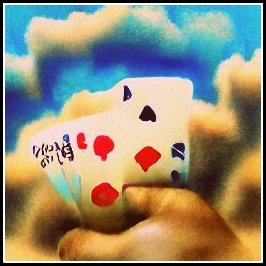Why do I write?
I don’t really know.
I do so, sporadically, secretly and typically in solitude. My output alternately artful and amateurish,
but never without ardour for the form itself.
After all, words are such a versatile ingredient, and in the kitchen of my
imagination I relish experimenting with the most outlandish combinations
possible. A tasty mystery, their
infinite variations of colour, style and complexity allure me with their
ability to anger, inspire and arouse.
However, writing and speaking, while superficially, may seem like common bedfellows but the differences are numerous.
First and foremost is the element of choice – most of us
choose to read, either reflexively or not.
Nestled within this ability is another – that of being able to
understand written language itself.
Words make themselves apparent to us a million ways every day, often in
the most pedestrian of situations.
Warning signs, food labels, street names and instructions. These utilitarian words simply “are” and
exist only for the conveyance of information.
In tone and delivery, they care not for our feelings or whether or not
we subscribe to the ideas they espouse.
Medical reports, exam results, witness statements – all such genres
present themselves to us plainly.
Then there are the words we chose to read for pleasure. Correspondence, love letters and works of
fiction both short and long. These words
- arranged in the proper order by a suitably qualified individual - have the
ability to transport us from the awful mundanity of our lives to some other more
preferable destination. Such expert
wielders of words have held many titles throughout history – a contemporary novelist
no different in function to a witch with an incantation.
Of course, the written word can be just as potent when the
element of choice is removed. It’s at
this critical juncture that words transform themselves into labels and insults
- able to be lobbed vengefully at another person like a clump of wet dirt. Most people can easily conjure a handful of
such words fairly effortlessly. With
their serrated edges, such terms can inflict significant damage to the
recipient, and are thusly, rightly expunged from the lexicon.
Written words also carry connotation – an emotional
component attached to the use of said word, either good or bad. This linguistic baggage implores us to use
our words considerately, to take heed of how they might be absorbed by those
around us. Lover. Disabled.
Invited. How do you feel when you
hear these words?
I bring to mind the writer’s process of composing,
re-reading and editing – like a recipe being adjusted after each attempt. Wracked with self-doubt and an honest desire
to creatively self-express he or she will tentatively share the fruits of their
labour with friends in the hope of garnering praise and adulation - or at the
very least - modulated opinion.
So, I ask myself again, why do I write? Not because I am inherently creative or
objectively skilled, but because I am confused.
I write to find purpose. I write
to find therapy and relief from my infuriating, vomit inducing anxiety. In black and white, my words sit stately on
my computer screen composed of trillions of tiny pixels. As they and their brethren reach forward
through time, I have less and less control over how they will be interpreted by
any future person who might intercept them.
Their terrifying potential for immortality is an even greater motivation
to execute my expression exactly.
Why do I speak?
To ask for what I want, to convey my feelings and ideas and
to make an audible sound. Why then in
this particular realm of human communication do I find myself so ill equipped? So often saying the wrong thing? When compared to the writer, the speaker is a
wild oaf – a clumsy house-guest possessing neither grace or decorum. If the written word is indeed a finely
calibrated tool, then its audible analogue is a bludgeon. It is as scalpel is to sledgehammer.
Unlike the writer, the speaker need not wait for feedback,
as it is often immediate. The effects of
his or her words written plainly upon the faces of their recipients. Words are short order cooking, conjured spontaneously
in the moment with only the paper-thin pretences of decency to prevent us from
uttering something catastrophically stupid.
The element of choice plays a role here too, as we can
either be talked “to”, or talked “at”.
Who cannot relate to the experience of a harsh word drifting ominously
toward our general direction? There it sits at our feet – uninvited – yet able
to expertly corrode our self-esteem.
Equally universal is the scenario of the discourteous dinner
guest, spewing words so inappropriate that they are unbelievable. “I can’t believe he said that!” we gasp through
breathless offence, or some other similar idiom connoting disbelief at a poorly
timed or acidic remark. This is one of
the truest pitfalls of words – they cannot be taken back, be undone, recovered,
deleted or retrieved. They are sound
waves, traversing space and time. When
it becomes apparent that our words have caused some damage, our solution is to
issue forth even more words – a socially sanctioned ritual called an apology.
Spoken words also mean the quality of the sound itself – a
person’s voice. Whether rich in timbre,
tone, tinny, loud, smoky or of irritating pitch our voices are the unique noise
each of us is capable of producing. Like
a sonic fingerprint, each voice is special and capable of evoking colourful
emotions.
But it is not merely enough to be able to make noise – most
animals have that ability. Speaking with
another person is a transactional exchange, a dance requiring a willing partner
of requisite skill.
Our voices change during puberty, prompting us to reconsider
our sonic signature, to use our voices more carefully. Others take a less considered approach,
preferring to speak profusely rather than precisely. Motivated by vanity (or perhaps a fear they
will suddenly wink out of existence), they speak only to fill silence and say
nothing of any substance at all.
To hear a conversation from the outside is to hear musicians
plying their trade, each one exhibiting their relative skill (or lack
thereof). Symphonic or cacophonic, the
orchestra of conversation is only as pleasant as the skill of its greatest
musician.
Whether written or spoken aloud, words become the threads
that knit together the fabric of our lives.
I wonder whether spoken words are merely the three-dimensional
renderings of the things I write, or something more – something ephemeral and
still outside the bounds of human perception.
At the intersection between writing and speaking lies a third thing – invisible
but nonetheless essential.
Thoughts.
Thoughts which build our reality, and in their infinite
quality allow me to write about my words and speak about my writing.


No comments:
Post a Comment